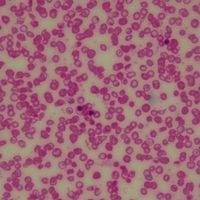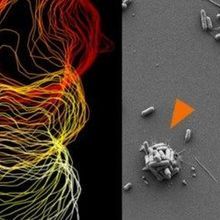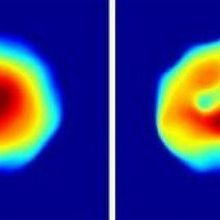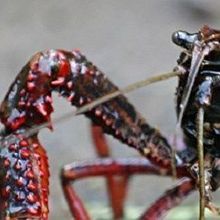Login
Subscribeblood cells

Accelerating Immune Research with Cryopreserved Peripheral Blood Mononuclear Cells
The Scientist and MilliporeSigma | Jul 18, 2022 | 3 min read
Commerically-available peripheral blood mononuclear cells offer a well-characterized, accessible, and consistent model for immunology and therapeutic development.

Woman Seemingly Cured of HIV After Umbilical Cord Transplant
Natalia Mesa, PhD | Feb 16, 2022 | 3 min read
Umbilical cord blood may be a good alternative to bone marrow transplants for treating HIV in patients with HIV and cancer.

Walter Gratzer, Biophysical Chemist and Science Writer, Dies at 89
Chloe Tenn | Nov 23, 2021 | 2 min read
His career bridged impactful research in molecular biology and biochemistry with prolific science writing for academic and nonacademic audiences alike.

LabTalk Podcast - Hijacking Genes: Uncovering the Cause of Lineage Ambiguous Leukemia
The Scientist | Oct 28, 2021 | 1 min read
Chromosomal rearrangements reposition influential and often overlooked non-coding elements in the genome to hijack genes and cause cancer.

Red Blood Cells Activate Innate Immune System
Abby Olena, PhD | Oct 20, 2021 | 4 min read
Researchers link the ability of the cells to bind and present DNA from pathogens and cell death to anemia, which is common in COVID-19, and immune activation.

Defined Primary Cell Culture and Media
The Scientist Creative Services Team in collaboration with MilliporeSigma | Jul 29, 2021 | 3 min read
A new partnership opens the door for a source of highly purified human primary cells and defined cell culture media.

Multiomic Single-Cell Analysis Identifies a Unique Stem and Progenitor Population
The Scientist | Jul 14, 2020 | 2 min read
Margaret Nakamoto will introduce the BD Rhapsody™ Single-Cell Analysis System, and Ravi Majeti will discuss how he and his team used concurrent RNA and BD® AbSeq Antibody-oligo multiplexed surface marker analysis to improve HSPC clustering and characterize specific phenotypic states along unique hematopoietic differentiation trajectories.

Early Results Are Positive for Experimental CRISPR Therapies
Jef Akst | Nov 19, 2019 | 2 min read
Two clinical trial participants—one with β-thalassemia and one with sickle cell disease—appeared to benefit from the gene-editing treatments with minimal side effects, according to the companies.

In Our Blood: A Profile of Stuart Orkin
Anna Azvolinsky | Jul 15, 2019 | 9 min read
By unraveling the molecular underpinnings of inherited blood disorders, the Boston Children’s Hospital researcher has provided the basis for therapies now being tested for beta-thalassemia and sickle cell disease.

Charting Crescents, 1910
Sukanya Charuchandra | Oct 1, 2018 | 3 min read
James Herrick, a Chicago doctor, was the first to describe sickled red blood cells in a patient of African descent.

How Red Blood Cells Get Their Dimples
Ashley Yeager | Sep 1, 2018 | 3 min read
Myosin proteins tug on the cell membrane, giving an erythrocyte its distinct shape.

Infographic: Red Blood Cell Shape
Ashley Yeager | Sep 1, 2018 | 1 min read
What happens when myosin inside red blood cells can't do its job?

Image of the Day: Hunter Platelets
The Scientist and The Scientist Staff | Dec 19, 2017 | 1 min read
Researchers explore how blood platelets sweep bacteria into aggregate bundles at sites of infection to help phagocytic cells dispose of them.

Image of the Day: Malaria Hologram
The Scientist and The Scientist Staff | Nov 5, 2017 | 1 min read
Optical engineers have developed a portable field microscope that could aid the diagnosis of diseased cells.

Crayfish Blood Cells Make New Neurons
Jyoti Madhusoodanan | Aug 12, 2014 | 1 min read
Hemocytes can form neurons in adult crayfish, a study shows.
